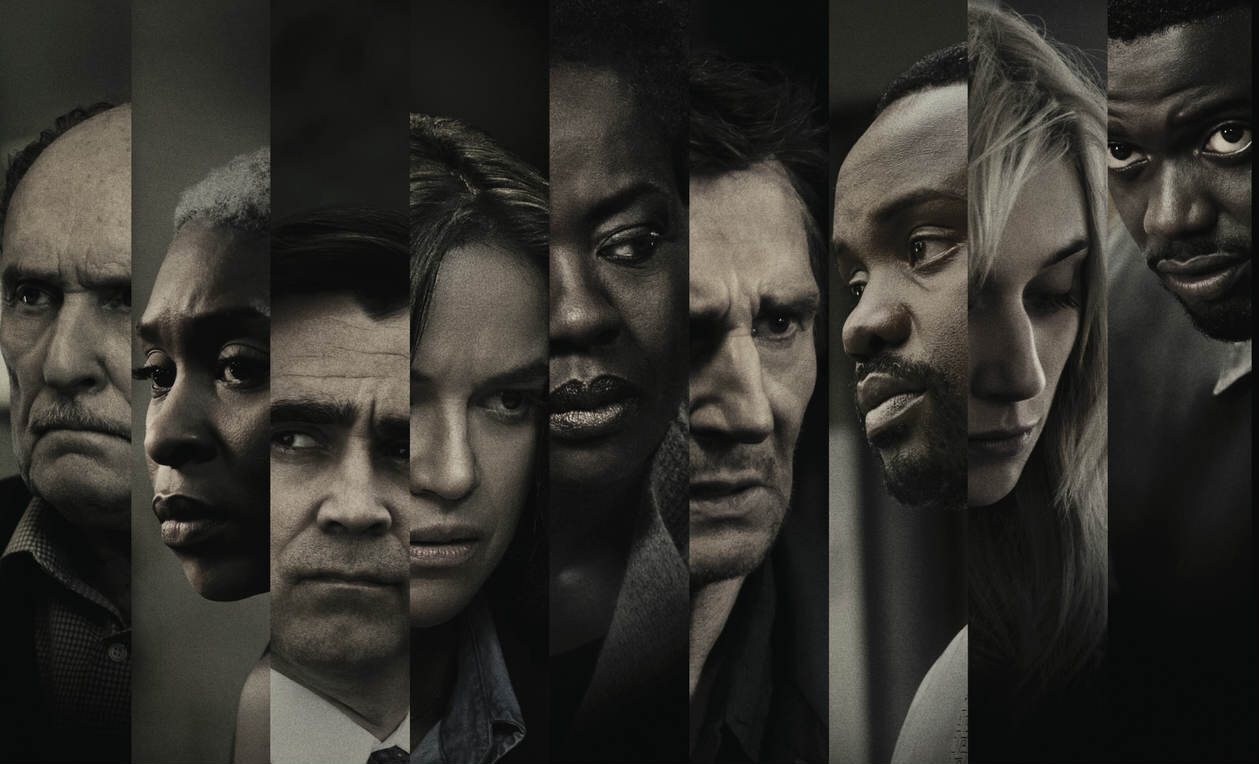Review: Widows
Four years since his Best Picture Oscar win for 12 Years a Slave, Steve McQueen returns with the smart, exhilarating heist-thriller Widows. McQueen teamed up with Gone Girl writer Gillian Flynn for the screenplay, which is as finely drawn as it is densely packed. The all-star ensemble cast work wonders with the material, filling each moment with the exact anguish or intensity it calls for. Though Widows is undoubtedly one of the year’s most exciting films, it is also one of the most urgent, insightful portraits of contemporary American politics and social dynamics in recent memory.
The film is centered on Veronica Rawlings (Viola Davis), who is left $2 million in debt to crime boss-turned-politician Jamal Manning (Bryan Tyree Henry) when her husband Harry (Liam Neeson) dies alongside his crew in a crime job gone wrong. Upon finding the plans for her husband’s next job, Veronica enlists the help of Linda Perelli (Michelle Rodriguez) and Alice Gunner (Elizabeth Debicki in a knockout performance), who were married to other members of Harry’s team, to carry out their own heist as a means of paying their debt to Jamal and achieving financial security for themselves. Their operation is complicated by the persistent threat posed by Jamal’s brother and strongarm, Jatemme (a menacing Daniel Kaluuya), who is pursuing the widows and is hellbent on uncovering their plans. All of this unfolds alongside a local election, which sees the wealthy Jack Mulligan (Colin Farrell) facing off against Jamal in a race that will determine the future of Chicago’s 18th ward.
Though all this may sound convoluted, not a single minute of screen time is wasted and each element of the plot eventually converges in the film’s thrilling final act. Widowsexpertly alternates between moments of vulnerability and acerbity in the seamless, thoughtful way that has become a hallmark of Flynn’s writing. She and McQueen craft each woman as being both resolute and tender in their own unique ways, diligently tending to their respective duties — whether that be finding weapons or a babysitter.
The characterization of Alice demonstrates the film’s best qualities — its complexity and attention to detail. Alice was abused by her husband — treatment she accepts, we come to understand, because her own mother (Jackie Weaver) hits her. Later in the film, Alice goes on a date with a man who asks her if she’s Russian. This inspires her to pretend to be a Russian mail-order bride in order to buy guns. Alice embodies Widows’ biggest success — the film’s ability to make every action, every line of dialogue absolutely critical to the plot.
The film’s most impressive feat is its capacity to express the inextricable link between crime and politics. Every crime committed influences a political outcome and every political maneuver informs a crime. This duality is also illustrated in the cinematography. Widows frequently splits shots and employs mirrored images to indicate that no situation is one-sided and every character is more than he or she seems.
“Is everything a transaction?” Alice asks, summing up the tension at the center of Widows. Though it is a heist thriller, Widows is really about the ways women and minorities are institutionally disempowered, the ways we are made to beg and barter for our humanity. The allusions to Black Lives Matter woven into the movie underscore this point. Widows makes us reflect on a question we quietly confront all the time — what is the value of a life and who is the arbiter of that value?
The film demonstrates the very real pain that plagues women who have to depend on men for money — what it is like to live in someone else’s house, what it is like to have nothing in your own name. This inequality is cyclical and inherited, something we learn from our families and practice by default. Widows offers us an out. Alice finds her own sense of worth throughout the film, eventually standing up for herself, saying to a man, “You say life like it’s yours to give. It’s not, it’s mine.” Widows depicts a group of women who decide to take control of their own lives at any cost. After such a turbulent year, what other film could feel so liberating?
